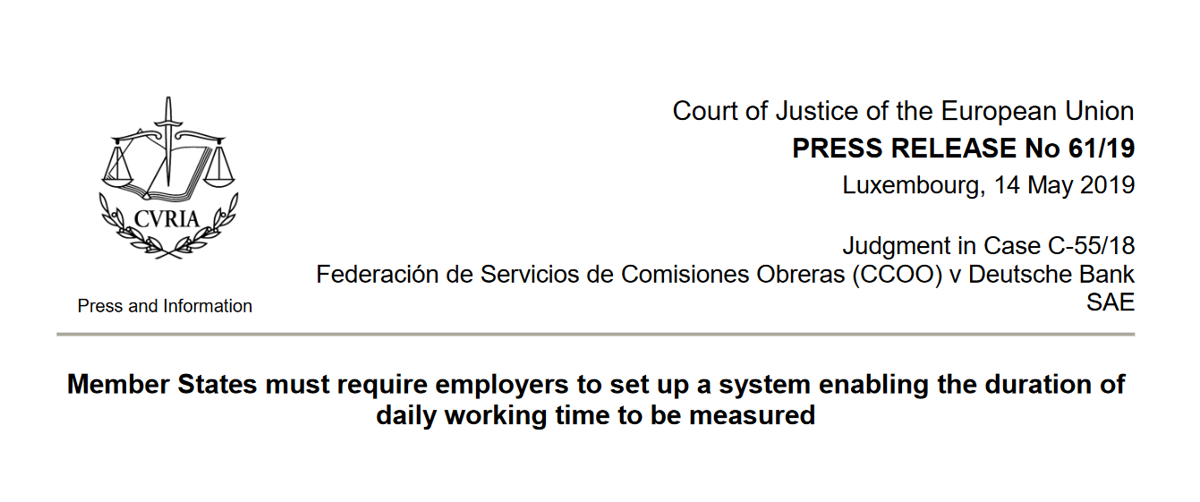The ECJ ruled on Tuesday that EU member states must require employers to set up systems that record the time worked each day by employees to ensure compliance with workers’ rights.
The ruling comes after Spain’s CCOO union asked the Madrid courts to rule on whether Deutsche Bank was required to record how many hours employees work each day rather than only overtime worked. The Madrid court subsequently referred the case to the ECJ.
Responding to the landmark ruling, industriAll Europe General Secretary Luc Triangle said:
“In most EU countries, workers are faced with rising levels of unpaid overtime. Not only are workers deprived of their well-deserved wages, but uncontrolled working hours have repercussions on the physical and mental health of workers. This ruling is a very important decision which signals that every hour worked must be registered and duly compensated.”
An ECJ press statement explaining the decision states:
“In the absence of a system enabling the duration of time worked each day by each worked to be measured, it is not possible to determine, objectively and reliably, either the number of hours worked and when that work was done, or the number of hours of overtime worked, which makes it excessively difficult, if not impossible in practice, for workers to ensure that their rights are complied with.”
"Member States must require employers to set up an objective, reliable and accessible system enabling the duration of time worked each day by each worker to be measured," in order to guarantee employees' rights under the EU's working time directive and the charter of fundamental rights.”
The implementation of the systems will be up to the member states.
